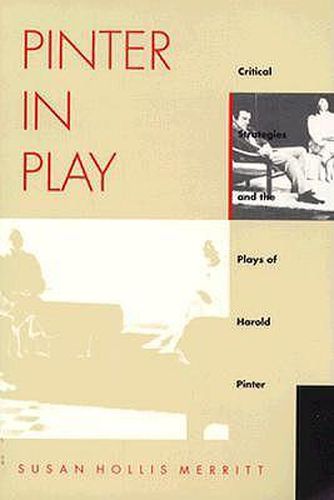Readings Newsletter
Become a Readings Member to make your shopping experience even easier.
Sign in or sign up for free!
You’re not far away from qualifying for FREE standard shipping within Australia
You’ve qualified for FREE standard shipping within Australia
The cart is loading…






Pinter in Play provides a survey of diverse readings of the Harold Pinter canon organized around and presented in terms of the major critical schools of the past twenty-five years, from New Criticism to deconstruction to poststructuralism. Reflecting on the cultural, personal, sociological, and philosophical contexts of these diverse critical perspectives and the critics who express them, this book is equally about the act or the art of literary criticism and itself an important work of literary criticism. Drawing on interviews with Pinter scholars, Susan Hollis Merritt shows how critics play with Pinter and thereby seriously enforce personal, professional, and political affiliations. Cutting across traditional academic and nonacademic boundaries, Merritt argues that greater cooperation and collaboration among critics can resolve conflicts, promote greater social equity, and foster ameliorative critical and cultural change.
$9.00 standard shipping within Australia
FREE standard shipping within Australia for orders over $100.00
Express & International shipping calculated at checkout
Pinter in Play provides a survey of diverse readings of the Harold Pinter canon organized around and presented in terms of the major critical schools of the past twenty-five years, from New Criticism to deconstruction to poststructuralism. Reflecting on the cultural, personal, sociological, and philosophical contexts of these diverse critical perspectives and the critics who express them, this book is equally about the act or the art of literary criticism and itself an important work of literary criticism. Drawing on interviews with Pinter scholars, Susan Hollis Merritt shows how critics play with Pinter and thereby seriously enforce personal, professional, and political affiliations. Cutting across traditional academic and nonacademic boundaries, Merritt argues that greater cooperation and collaboration among critics can resolve conflicts, promote greater social equity, and foster ameliorative critical and cultural change.